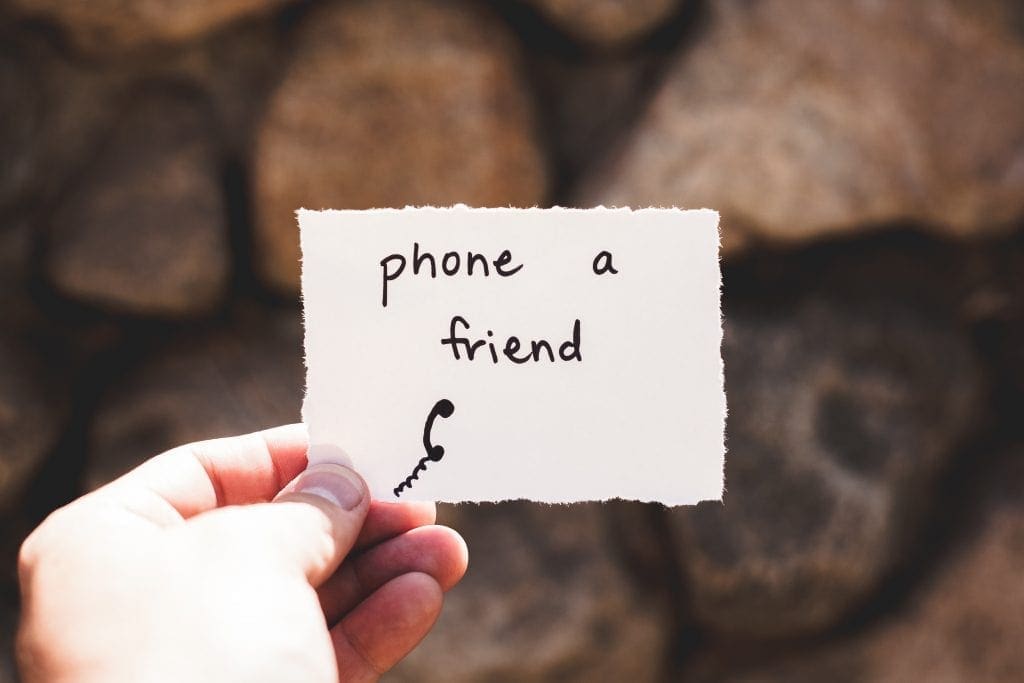At an early age, most men are taught that “real men” are never to show any signs of weakness. They are the heads of households, the provider and protector to their families, and bosses in the workplace. They are not to show negative emotions, nor should they need any help. Unfortunately, they grow up believing this and go through life trying to do everything on their own without expressing themselves, or more importantly, reaching out for help.

Of course, there are other reasons that men don’t want to get help. There is the fear of being labeled as weak, the fear of being rejected, denial that anything is wrong, and not wanting to burden others. These reasons may seem logical, but essentially, not asking for help when you need it can only make life more difficult to live.
Consequences of Not Asking for Help
If you don’t ask for help, you will never receive it, what’s the worst that can happen? The fact is, a lot could go wrong. Here are a few consequences listed below:
Your Problem Takes Longer to Resolve (or Gets Worse)
Imagine you have a big project at work, and you’re up against a big deadline. You know there are some coworkers who could pitch in and help you get things done faster but, for whatever reason, you’ve decided not to get their assistance. You spend long hours working as hard as you can, but despite your best efforts, you miss the deadline and/or turn in sub-par work. This ruins your professional reputation and creates a bigger problem your supervisors and coworkers will have to fix. OR, the client you were working for decides to take their business elsewhere.
Maybe you’ve been suffering from depression and have been self-medicating with drugs and alcohol. You know it’s not good for you, and you try to quit, but none of the methods you have tried are working. You’re aware of places like Windward Way rehab, but you’re reluctant to enroll because you’re afraid you’ll lose your job or be called an addict. So, you continue struggling with substance dependence and addiction until it takes away your health, family, career, and personal life.
You Add More Stress to Your Life
There are problems in life that you are more than capable of handling on your own, but the amount of time, effort, and responsibilities required to get it all done can prove taxing on your mental and physical health. In our pursuit of perfection, we often expect too much of ourselves creating unnecessary pressure; this, in turn, causes your body to go into fight or flight mode. Your brain releases hormones like cortisol, which increases levels of stress. Suddenly, you start feeling symptoms of chronic stress, including fatigue, loss of energy, lack of concentration, headaches, body aches, a weakened immune system, trouble sleeping, and much more.
Alienation of Those You Care About
You’re having a really hard time dealing with the fact that you just lost your job. You’re internalizing your emotions, which causes you to isolate yourself from things you once enjoyed. You keep to yourself and stay stuck in your head, unaware that the people around you feel the shift in your energy and want to help. Some people even start lashing out at those around them or taking their frustrations out on loved ones. Your family and friends, unable to comprehend, then feel bad and start to steer clear of you.
A Lot of Wasted Time and Energy


If you have a home improvement project, you want to get done. You have the tools and skills necessary to get it done, but you also have a demanding job, which takes up a big portion of your time. Instead of asking for help, you work on the project every weekend over the next few months. If you had asked for a hand, however, you could have been finished in just a few weeks.
Missed Learning Opportunities
You only know what you know. When you are the only resource you turn to in times of need (large or small), you reduce your ability to learn new things. Not asking your coworker to help you create a presentation could cause you to miss out on the opportunity to learn how to utilize presentation software to your advantage. Not going to the doctor when you’re sick could cause you to miss out on a chance to learn how to improve your health.
Asking for help may seem like a weakness, it may feel like you’re a burden to others, and getting rejected can hurt. Be that as it may, asking for help is the wisest thing you can do when you’re in need. It helps you to get problems resolved faster, exposes you to new learning opportunities, strengthens your personal relationships, and reduces the stress in your life. So, whenever you need help, kick those stigmas to the curb and ask.




